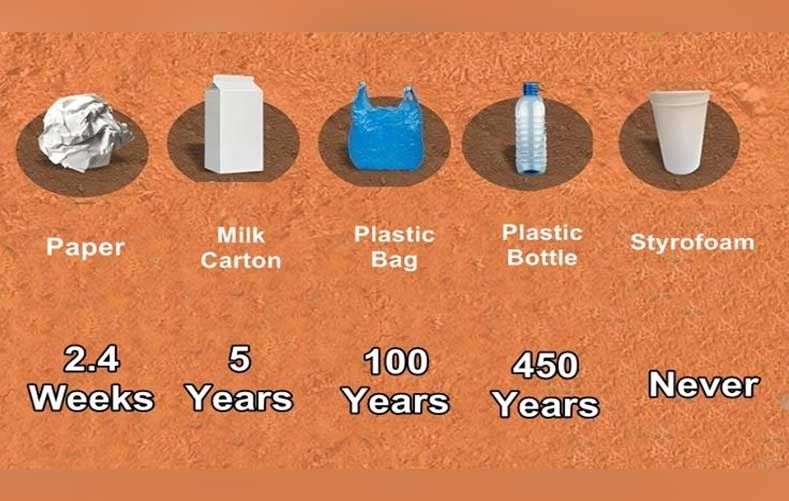An estimated 312 tons of single-use plastic is produced per month in Bangladesh, posing a serious threat to the nation’s health and the environment, experts warned on Wednesday.
The “Stop using single use plastic to protect human health and Environment” report released by the Environment and Social Development Organization (Esdo) found that per year, 3,744 tons of single-use plastics are produced nationwide.
In Old Dhaka alone, around 250 tons of non-recyclable products such as straws and plastic cutlery are being sold every month.
Among the produced plastics, approximately 80-85% are discarded after one use and end up in drains, canals and rivers, creating massive pollution in the rivers which eventually ends up in the Bay of Bengal.
The report revealed that only five manufacturers make around 97.5 million pieces of products per month, which weigh a combined 195 tons.
“In Bangladesh, manufacturers are using single use plastics for packaging various food products, household and personal care products,” Esdo Chairperson Syed Marghub Murshed said at a press conference in Dhaka on Wednesday.
Single-use plastics include drinking straws, plastic cotton buds, sachets, food packaging and plastic bags. In the slow process of their decomposition, the plastics release toxic chemicals which are now being detected in human bloodstreams and may cause cancer, infertility, birth defects and many other ailments.
“This plastic contains many different chemicals with endocrine disrupting properties including solvents, UV stabilizers, phthalates, antimicrobials, and industrial additives,” the Esdo chairperson said.
Professor Md Abul Hashem, chairman of chemical division of Bangladesh Standards Testing Institute, said awareness should be raised against the use of single use plastics.
“They are a big environmental problem and are causing massive issues that affect human and animal health,” he said.
Secretary General of Esdo, Dr Shahriar Hossain, said foamed plastic contains styrene and benzene which are toxic and carcinogenic.
“They have severe effects on our respiratory, nervous and reproductive systems,” he said.
“We use single-use plastic only for our comfort. We need to ban this plastic. There are more environment-friendly alternatives, for example bamboo or glass.”
Written by Mehedi Al Amin. Originally posted in Dhaka Tribune.




